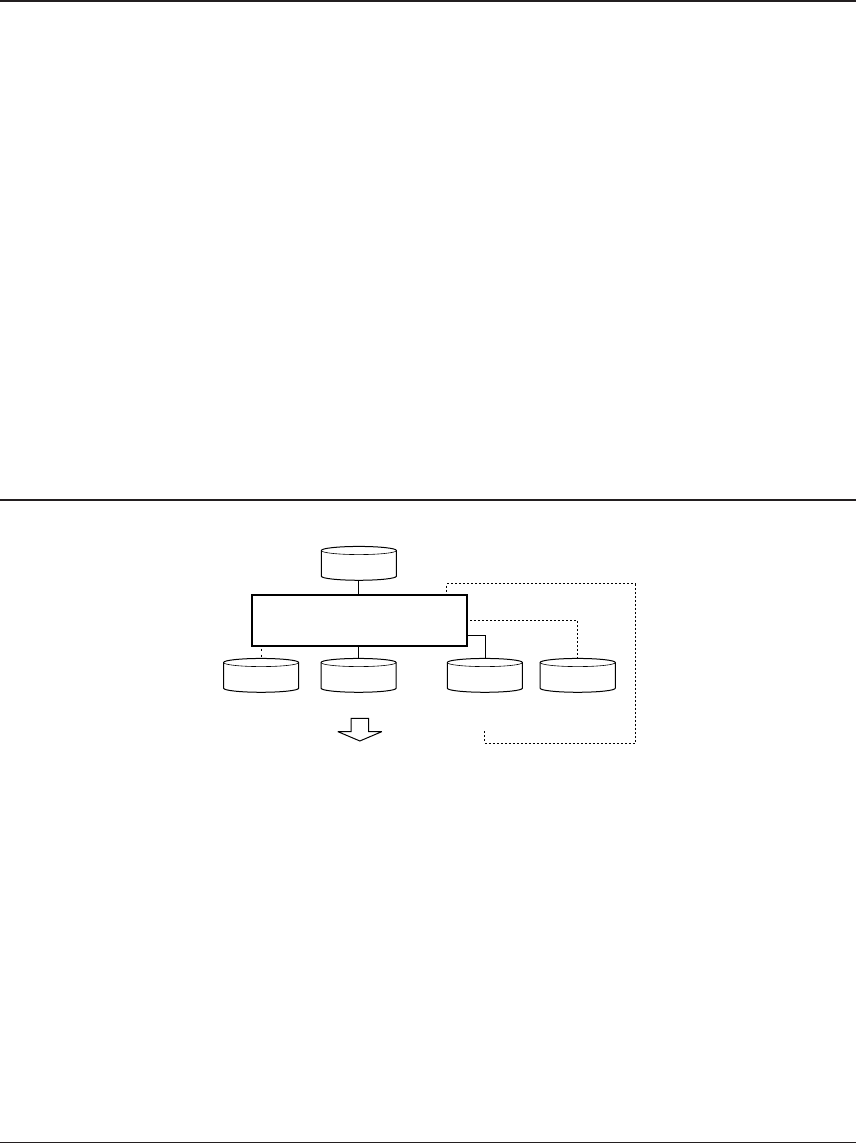
CHAPTER 4: ASSEMBLER
S5U1C63000A MANUAL EPSON 47
(S1C63 FAMILY ASSEMBLER PACKAGE)
CHAPTER 4ASSEMBLER
This chapter describes the functions of the assembler as63
and grammar involved with the creation
of assembly source files.
4.1 Functions
The assembler as63 is a tool that constitutes the core of this software package. It assembles (translates)
assembly source files and creates object files in the machine language.
The functions and features of the assembler are summarized below:
• Allows absolute and relocatable sections mixed in one source.
• Allows to develop programs in multiple sources by creating relocatable object files that can be com-
bined by the linker.
• Can add source debugging information for source debugging on the debugger.
• Upper compatible with the old S1C63 preprocessor and assembler.
The assembler provides the following additional functions as well as the basic assembly functions:
• Macro definition and macro invocation
• Definition of Define name
• Operators
• Insertion of other file
• Conditional assembly
The assembler processes source files in two stages: preprocessing stage and assembling stage. The
preprocessing stage expands the additional function part described in the source file to mnemonics that
can be assembled, and delivers them to a temporary file (preprocessed file). The assembling stage as-
semble the preprocessed file to convert the source codes into the machine codes.
4.2 Input/Output Files
Assembler
as63
file.s
Assembly source file
file.o file.msfile.lst
Object fileRelocatable
list file
file.err
Error filePreprocessed
source file
to Linker
Fig. 4.2.1 Flow chart
4.2.1 Input File
Assembly source file
File format: Text file
File name: <File name>.s
<File name>.ms (A preprocessed source file created by the assembler or disassembler.)
Description: File in which a source program is described. If the file extension is omitted, the
assembler finds a source file that has the specified file name and an extension ".s".
Note: When a ".s" source file is specified, it will be processed in the preprocessing stage
and then the assembling stage. When a ".ms" source file is specified, it will be
processed only in the assembling stage. Therefore, ".ms" files cannot include prepro-
cessor instructions.


















